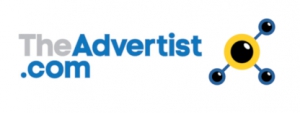Illustrator, muralist, graphic artist and all round fantastic geezer, Vic Lee has just published his Corona Diary 2020 – an illustrated guide to all the madness we’ve been experiencing over the last 3 months.
Buy a copy now CLICK HERE
Vic chats with the graphically-challenged Keith Smith about his landmark iconic murals that adorn the walls of many a creative hot-shop. He tells us how he became an artist, what inspires him, how he can remain so cool in all this chaos and his next big projects.
And we discover why CMOs love him so much.
All of us at The Advertist invite you to check out The Fuel Podcast, where we pull on the experience of leaders of companies in a variety of sectors with loads of fantastic interviews, tips and tales.
To check out this episode click here.
Vic Lee’s LinkedIn profile
